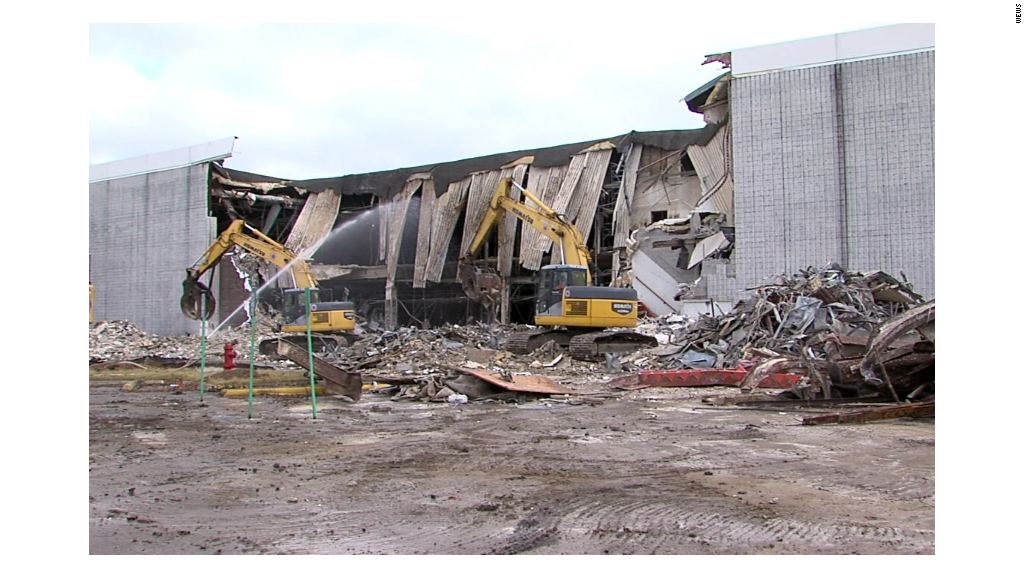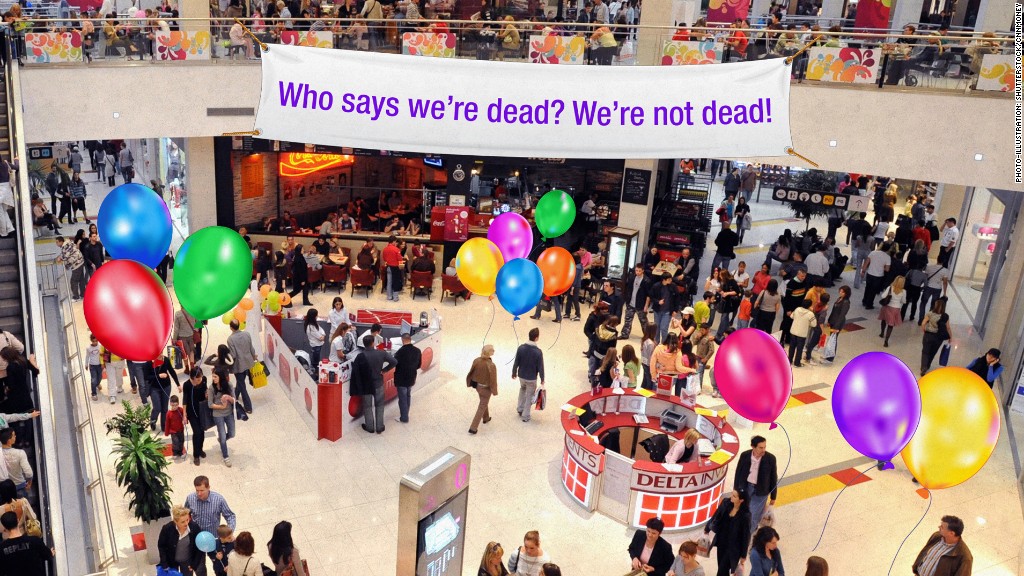
Much has been said about the demise of the mall, those suburban shrines to the supreme deities of commerce.
There's even a great line in the Arcade Fire song "Sprawl II" about how "dead shopping malls rise like mountains beyond mountains. And there's no end in sight."
But this isn't entirely true. Many of the big companies that own malls are doing better than ever.
Shares of mall owner Simon Property Group (SPG) hit an all-time high on Wednesday. Simon owns the massive King of Prussia Mall in Pennsylvania as well as the Galleria in Houston.
Rivals General Growth Properties (GGP), Macerich (MAC), Taubman Centers (TCO) and CBL & Associates Properties (CBL) are all hovering around 52-week highs. General Growth owns the Ala Moana Center in Honolulu while Macerich owns the Tysons Corner Center in Virginia.
So much for malls being on their last legs.
Sure, many old, dilapidated malls are struggling. And many mall-based chains are in serious trouble, especially retailers that cater to teens. Wet Seal (WTSL) just announced plans to close 338 stores.
Related: These 5 teen retailers are on the endangered list
But there are always going to be some big losers in retail, particularly the fickle world of fashion.
While malls get a bad rep, they're going more upscale these days. Think of how many of them have Apple (AAPL) and Nordstrom (JWN) stores in them.
Consumers are shopping until they drop. By all accounts, consumers are spending again. Retailers are expected to report pretty solid results for the fourth quarter. Shoppers may have been willing to part with more of their cash than usual during the holidays thanks to plunging gas and oil prices.
Even J.C. Penney (JCP), a retailer that has been struggling for years and is a key anchor tenant in many malls, reported solid sales during November and December.
And if stores are doing well, that's great news for the mall owners, which generate a big portion of their sales and profits from leasing space to retailers.
Simply put, more consumers at the mall usually means that the mall owners are able to boost rental rates once old leases expire. And that appears to be what's happening now.
Related: A mall that once was the world's biggest was recently torn down
In the third quarter, Simon Property Group reported that the average minimum rent in its malls rose 4.4% from a year ago. And the occupancy rate increased to 96.9% from 96.3% in the same period during the third quarter of 2013.
In other words, the notion that all malls are ghost towns is a bit of a myth.

So when you look at the numbers for the big mall owners, you'd find that analysts are forecasting pretty decent results for 2015.
Sales are expected to increase nearly 3% this year at Simon and profits are expected to jump 10% thanks to lower expenses. It's a similar story for the other mall owners: Wall Street is predicting a 5% increase in sales and 8% pop in earnings for General Growth and nearly 10% increases in revenue and profits for Macerich.
Mall stocks are better than bonds. But there's another reason the mall companies are doing well. And that has nothing to do with consumer spending. The mall owners are all set up as real estate investment trusts, or REITs. And REITs are required to pay a big chunk of their profits back to investors in the form of a dividend.
With rates on the 10-Year U.S. Treasury languishing just below 2%, many high-yielding stocks have become more attractive to conservative investors looking for the security of a fixed income payment that's more lucrative than a bond.
Related: Saving America's malls from the brink of death
Simon, General Growth and Taubman all pay dividends that yield more than 2%. Macerich's yield is above 3%. And CBL's dividend sports a whopping 5.5% yield.
As long as interest rates remain relatively low and consumers keep driving their SUVs to the local mall, these stocks should do okay.
So if you own any of the stocks, feel free to toast them with a celebratory cup of Orange Julius, a staple in many malls I frequented during my disaffected suburban Long Island youth.
Heck, Orange Julius is still around. In fact, it's now owned by none other than Berkshire Hathaway (BRKB), the investment firm run by the Oracle of Omaha.
See you at the mall, Warren Buffett!


